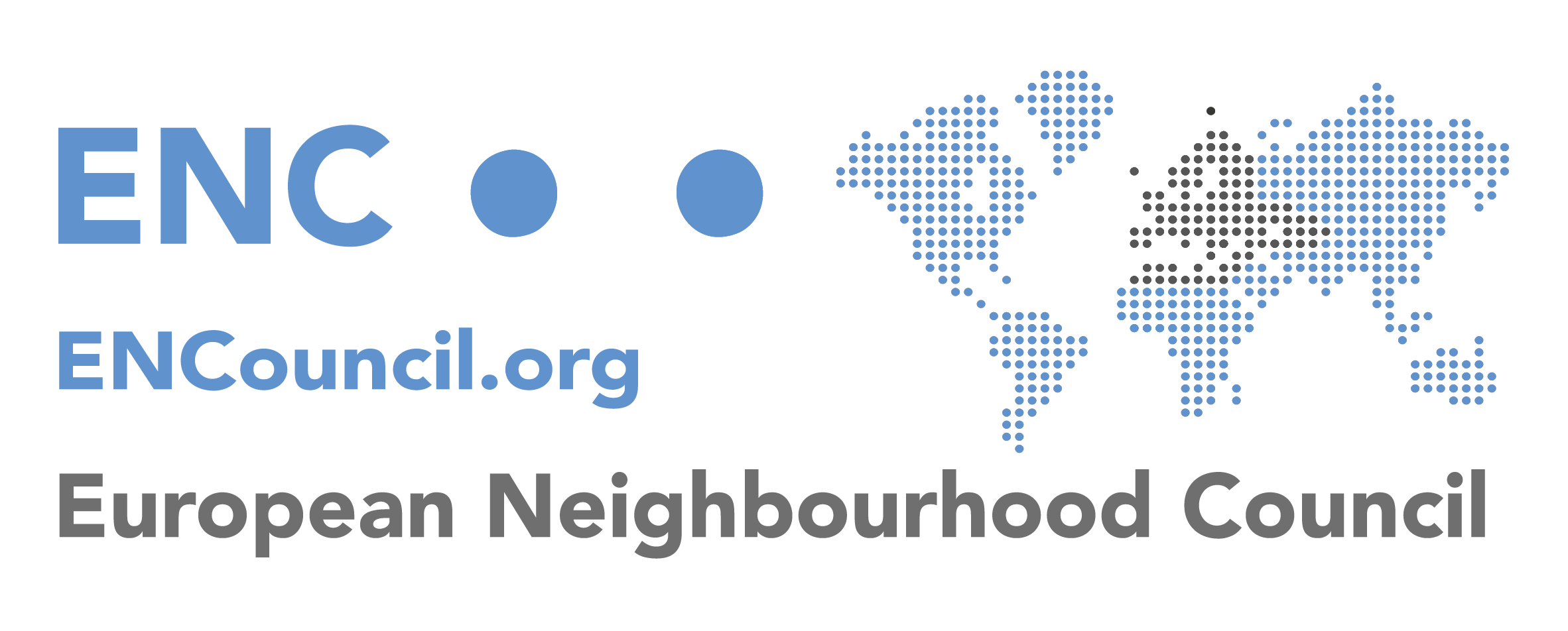ENC Academic Council, Partnerships and Organizational Guidelines
The following document outlines the exact organisational structure and membership obligations, guidelines and decision-making rights of Academic Council Members (ACM), external advisors and partners of the European Neighbourhood Council (ENC). This includes obligations and representation of external advisors, ACMs, non governmental and network partners and rules regarding the decision making of ENC’s annual research, event and project planning from a subject and country-based perspective.
ENC is divided into five separate structures: Academic Council, External Advisors, Regional Networks and Research and Event Partnerships. Each separate structure will be defined and examined below with references to funding, decision-making, including on-going obligations and annual tasks.
Academic Council
ENC is a non-profit organisation with its legal seat in Brussels, Belgium. It serves as an independent research centre with a platform for university academics specialised in democracy, foreign affairs, economy, education and security. The aim is to foster inter- and cross- regional dialogue, research, events and projects between academics and policy makers throughout the defined geographical and topical areas of ENC.
The guidelines for ENC’s Academic Research, Academic Events and Academic Projects are determined annually through consultations with all ACMs.
For more information please check the ENC Academic Council Partnerships and Organizational Guidelines in PDF format below.
Academic Council Members
Academic Council Members are posts exclusively reserved for academics – enrolled, academically employed or conducting research for a university institution – in any EU member state, EU candidate country, European Neighbourhood Policy area country, Gulf Cooperation Council countries or one of the five Central Asian republics. Academic Council Members determine the guidelines for research and projects to be undertaken by ENC on an annual basis.
- Armenia
- Belgium
- Bosnia and Herzegovina
- Denmark
- France
- Georgia
- Germany
- Greece
- Jordan
- Kazakhstan
- Kyrgyzstan
- Moldova
- Switzerland
- Morocco
- North Macedonia
- Norway
- The Netherlands
- Palestine
- Egypt
- Poland
- Portugal
- Tunisia
- Turkey
- United Kingdom
- Ukraine
- United Arab Emirates
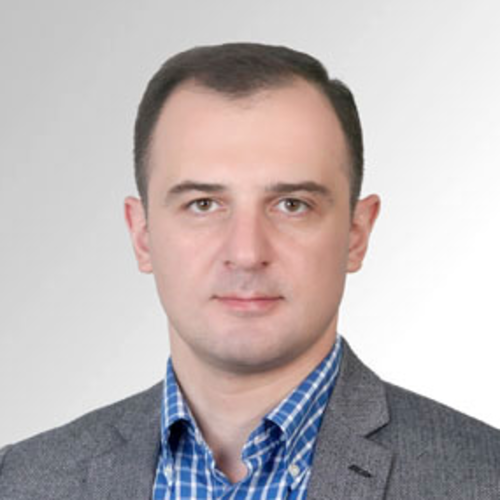
Areas of Expertise: Political Islam, Kemalism, Turkish domestic and foreign policy issues, South Caucasian regional security problems.
Country: Armenia
Professional Background: Dr. Ter-Matevosyan is an Associate Professor and Chair of Political Science and International Affairs Program at the American University of Armenia. He specializes in the foreign and security policies of Turkey and the South Caucasus states. He has received his Dr. Philosophy Degree in history from the University of Bergen (Norway), Master’s degree from Lund University (Sweden), Candidate of historical sciences degree from the Institute of Oriental Studies (Armenia). He was Visiting Professor at Duke University, NC (2016), Fulbright Scholar at the University of California, Berkeley, CA (2009-2010) and Visiting Doctoral Student at the University of Washington, Seattle, WA (2005).
He has authored two monographs: “Turkey, Kemalism, and the Soviet Union: Problems of Modernization, Ideology and Interpretation”, New York & London. Palgrave Macmillan 2019; an award-winning monograph “Islam in the Social and Political Life of Turkey, 1970-2001”, Yerevan, Limush, 2008; and co-authored “History of the Turkish Republic”, Yerevan State University Press, 2019. His research articles have been published both in edited volumes published by Routledge, Springer and the following peer-reviewed journals: “Nations and Nationalism”, “Third World Quarterly”, “Europe-Asia Studies”, “Turkish Studies”, “Middle Eastern Studies”, “Digest of Middle East Studies”, “Insight Turkey”, “Eurasian Geography and Economics”, “Caucasus Survey”, “Journal of Southeast European and the Black Sea Studies”, “Iran and the Caucasus”, “Diaspora Studies”, etc.

Areas of Expertise: Democratisation, executive-legislative relations in Newly Independent States (NIS) and Eastern European countries; electoral laws and electoral processes in NIS and Eastern European countries, studies in political opposition, comparative trends in higher education and Bologna Process ınfluence over educational development in NIS.
Country: Armenia
Professional Background: Dr. Alexander A. Markarov is responsible for the management and overall responsibility for YSU’s international academic, educational and scientific collaboration, and supervision of the activities of International Relations, Grants, Diaspora, and Foreign Students Departments. He is also a Member of the YSU Academic Council, YSU Rectorate and Rector’s Council, and a Member of YSU’s strategic planning committee (SPC). Dr. Markarov has a rich volume of publications and awards (2014 Golden medal of the Ministry of Education and Science of the Republic of Armenia, 2009 YSU Golden Medal for Achievements, 2000 and 2001 Official Citations by the Standing Committee on Foreign Affairs of the National Assembly of the Republic of Armenia).
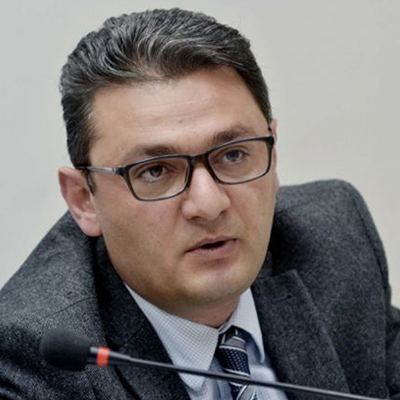
Areas of Expertise: International security studies, small state studies, EU studies, regional integration, Armenian foreign and security policy.
Country: Armenia
Professional Background: Dr. Galstyan has taught at the Faculty of International Relations at Yerevan State University in Armenia. He has written over 20 articles and book chapters, co-authored 3 manuals and 1 monograph.
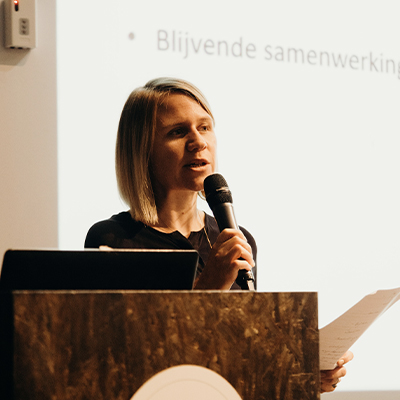
Areas of Expertise: EU foreign policy; European Neighbourhood Policy; EU relations with post-Soviet countries; EU policy towards Central Asia
Professional Background: Fabienne Bossuyt is Assistant Professor at the Centre for EU Studies at the Department of Political Science at Ghent University (Belgium), where she teaches in the MA program in EU Studies. Her main area of expertise is the EU’s relations with the post-Soviet space and in particular Central Asia. Her most recent research projects focus on various aspects of the EU’s relations with and policies towards Central Asia and other post-Soviet countries, including democracy promotion, development policy, human rights promotion and connectivity. She has published widely on these issues, among others, in Democratization, Cambridge Review of International Affairs, Journal of International Relations and Development, Eurasian Geography and Economics, Southeast European and Black Sea Studies, East European Politics & Societies, and Communist and Post-Communist Studies. She is currently co-editing a book on the EU-Russia relationship (Brill), as well as a book on the EU’s and China’s engagement with Central Asia (Routledge). She was involved in the preparation of the EU’s new strategy for Central Asia, including as rapporteur for the EU Special Representative for Central Asia and as a policy advisor, inter alia, for the German and French Ministries for Foreign Affairs. She also contributes to public debates, including through the media and influential think tanks, including CEPS and RIAC. She is an associate researcher at EUCAM and a member of the Advisory Board of the GCRF COMPASS project.
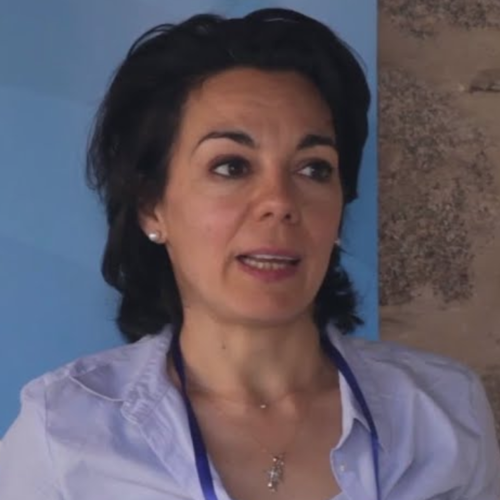
Areas of Expertise: Arab World, Education, Religious minorities.
Country: Belgium
Professional Background: Dr. Saenz-Diez’s Ph.D. dissertation on Education in Egypt since the 1950s has been published in 2013, “Égypte d’une Révolution à l’autre. Politiques d’enseignements et changements sociaux”, in which she analyses, among other things, the Islamisation of society through Education. In addition to her academic activity, she cooperates with many international media (newspapers, TV, and radio). Previously, Dr. Saenz-Diez has been working in Madrid with the Taller de Estudios Internacionales Mediterráneos (Universidad Autónoma de Madrid) and in Paris with the Institut Maghre-Europe (Université Paris VIII).
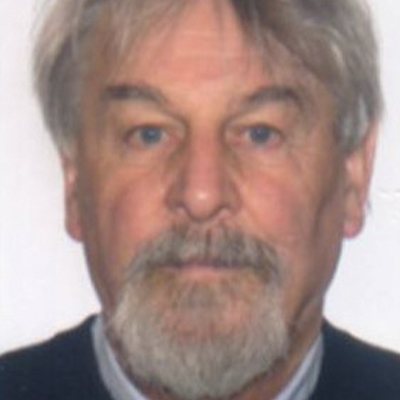
Areas of Expertise: Union for the Mediterranean region, Neighbourhoods’ energy stakes, successive reforms of the ENP, interests, and values of the EU.
Country: Belgium
Professional Background: Before devoting his time to research and teaching in his current project, Dr. Leray served as Advisor on strategic thinking on foreign policy, defense, security, and armament at the European Commission, including as advisor to Jacques Delors.
His educational background includes namely a Ph.D. in Economics Sciences.
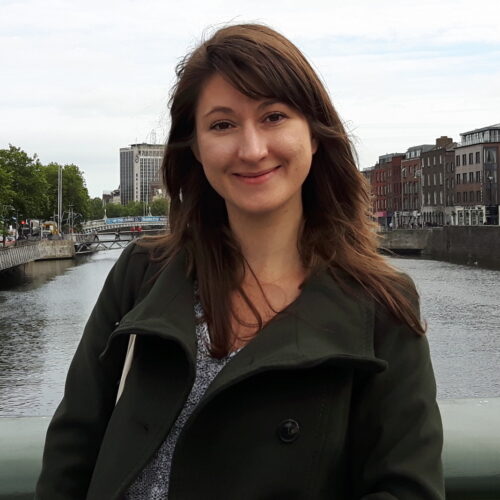
She received her PhD degree in International Relations from the University of St Andrews (UK). In recent years, she held research and teaching positions at the Centre for Global Cooperation Research, University of Marburg and University of Giessen (Germany), Tajik National University (Tajikistan) and University Sorbonne Paris Nord (France). Karolina also has practical experience in the development sector in Tajikistan, where she worked for the International Organization for Migration (IOM) and Eurasia Foundation of Central Asia (EFCA)-Tajikistan.
She is a member of the Steering Committee of the Russia Platform at Ghent University and an academic network ‘Local Ordering and Peace’ based at the University of Hamburg.
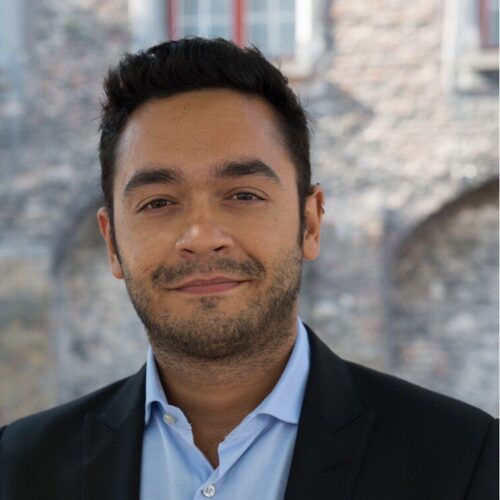
Areas of Expertise: EU foreign policy, Russia’s foreign policy, EU Neighbourhood Policy and Eastern Partnership, EU-Russia relations, former Soviet region, public diplomacy, cultural diplomacy and relations
Professional Background: Domenico is a policy analyst in EU and Eastern Europe affairs and a practitioner of public and cultural diplomacy. As a PhD fellow at the Ghent Institute for International and European Studies (GIES, Ghent University) and at the United Nations University – CRIS, he analyses the role of culture in the EU’s and Russia’s foreign policies in the former Soviet region. He has conducted fieldworks in Russia, Moldova and Armenia, where he used a qualitative framework based on multi-sited physical and digital ethnography, and including participant observation and in-depth interviews. Since 2020 he has been a Visiting Professor at Maastricht University, teaching a course on EU-Russia relations. Complementing his academic experience, Domenico has also worked as a cultural officer at the Italian Ministry of Foreign Affairs where he contributed to the preparation of Italy’s foresight document on language diplomacy.

Areas of Expertise: Public and cultural diplomacy and relations, EU foreign policy, EU Neighbourhood Policy in Southern and Eastern Neighbourhoods, International Relations and Cooperation, Peace and security, EU policy development and research
Professional Background:
Lina is a researcher and practitioner in international cultural relations. As a PhD researcher at the Brussels School of Governance, she analyses the role of culture and cultural relations for peace and security in conflict-affected countries, with a focus on Ukraine and Yemen. She also is a Deputy Director at the Jean Monnet Centre of Excellence for Cultural Diplomacy and Cultural Relations at the University of Siena in Italy. In addition to her role, she is a visiting lecturer teaching cultural diplomacy at the university and a research fellow, specialising in the field of international cultural relations.
Previously, Lina held the position of Programme Manager at the EU National Institutes for Culture (EUNIC). She was the project coordinator for the DG NEAR funded project on the Cultural and Creative Industries' cooperation in the Northern Dimension Partnership on Culture countries (Germany, Poland, Scandinavia, Baltics, and the Russian Federation). Her other responsibilities included implementing programmes, fostering knowledge exchange among EUNIC members and enhancing project delivery capacity. Lina's expertise extends to policy development within the EU and EU Member States, encompassing culture, cultural and creative industries, development, youth, and education. Lina has also contributed her insights to numerous publications, with a particular interest in the role of culture in international relations, especially during times of crises. Lina holds a double master’s degree in Management and Economics of Art, Media, Culture, and Entertainment from the University of Bocconi and in Creative Business Processes from Copenhagen Business School. Beyond her academic achievements, Lina is an experienced moderator, trainer, and facilitator, on EU funding, organisational development, strategy formulation, group dynamics, and experiential learning initiatives.
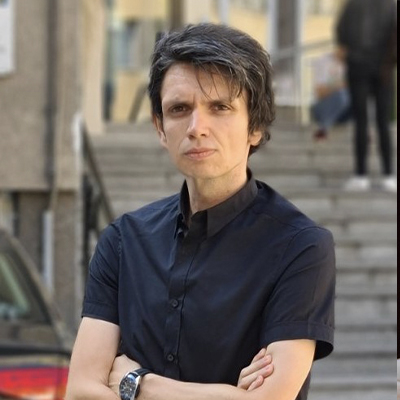
Country: Bosnia and Herzegovina
Area of expertise: Political Philosophy, Critical Political Theory, Social and political movements, Political engagement, Arts and Politics, Contemporary Bosnia and Herzegovina and the Balkans, Cyber politics
Professional Background: Jasmin Hasanović is a Senior Teaching Assistant at the Department for Political Science at the Faculty of Political Science, University of Sarajevo. He is engaged in Courses seminars including International Security, Geopolitics, Contemporary Political Theories, Political Leadership, Theory of Democracy and Human Rights, and Contemporary Theories of Power. He is an associate at the Institute for Social Science Research and Coordinator of the Office for International Cooperation at the Faculty of Political Sciences, University of Sarajevo. As a guest lecturer, he has visited several European universities (Ljubljana, Nijmegen, The Hague, Porto, Kaunas, Prague…) and participated in several domestic, regional, and international conferences, seminars, and scientific conferences. Author of more scientific articles and book chapters both on Bosnian/Croatian/Serbian and English language. Hasanović is also a member of the Board of Directors and a regular contributor to the Bosnian portal for social and cultural issues Prometej and was one of the Executive Editors of the regional magazine for left-wing critical thought Novi Plamen. He is also one of the founders and creators of the Kvadrat 2020 collaborative project which gathers young activists and intellectuals from Bosnia and Herzegovina and the broader, Yugoslavian area.

ENC Academic Council Member and Associate Professor of Political Science and Global Refugee and Migration Studies at Aalborg University in Copenhagen
Areas of Expertise: Global Refugee Studies, Power-sharing in divided societies, Euro-Mediterranean migration dynamics, and governance, Arab states’ coping mechanisms with forced migration, the role of immigrant communities and diasporas in democratization and conflict transformation.
Country: Denmark
Professional Background: Dr. Tamirace Fakhoury is an incoming Associate Professor of Political Science and Global Refugee and Migration Studies at the Global Refugee Studies Research Group (GRS) at Aalborg University in Copenhagen. She is also the Scientific Advisor to the Kuwait Chair at Sciences Po in Paris (2020-2022). Prior to joining AAU, Tamirace was an Associate Professor at the Lebanese American University and the director of the Institute for Social Justice and Conflict Resolution (ISJCR). From 2012 until 2016, she was a visiting Assistant Professor in the summer sessions at the University of California in Berkeley. Tamirace is currently a co-investigator in the multidisciplinary GCRF-funded project “Rights for Time” network which looks into shifting the possibilities for humanitarian protection through research on how time conditions war and displacement. She is also a co-investigator in the H2020 project on “Migration Governance and Asylum Crises” (MAGYC). From 2014 until 2016, she was a principal co-investigator on the project Syrian refugees’ justice concerns and access to formal and informal justice in Lebanon.
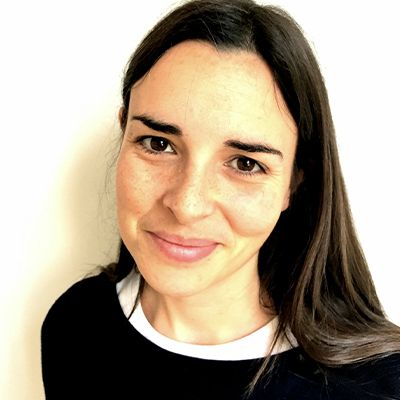
Areas of Expertise: South Caucasus, Political economies of conflict, International relations, Development and humanitarian aid.
Country: France
Professional Background: Dr. Prelz Oltramonti received her PhD in Political Science from the Université libre de Bruxelles. She defended a thesis on political economies of conflict protraction in Georgia. She is an alumnus of King’s College London (MA Conflict, Security and Development) and University College London (BA European Social and Political Studies). She has also worked in the fields of development (Integration Consortium, DG AIDCO) and political campaigning (Obama for America, Campaign for Change).
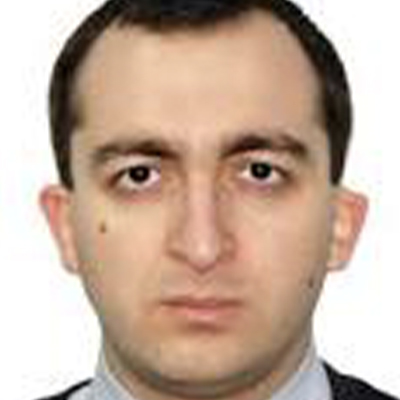
Areas of Expertise: Security, conflicts, democratization and transformation, ENP, Caucasus, Russia and Georgia.
Country: Georgia
Professional Background: Dr. David Matsaberidze, holds his Ph.D. in Political Science from Tbilisi State University and had studied Conflict and Nationalism at the Central European University, earning MA in Nationalism and Ethnicity Studies. Since 2013 he is an expert with the Partnership for Peace Consortium of Defense Academies and Security Studies Institutes and was the recipient of the Academic Fellowship Program of the International Higher Education Support Program, Open Society Foundations in 2008-2014. He is the author of around 15 articles and 2 book chapters published with various research and policy institutions in Germany, Austria, Romania, Serbia, Hungary, Ukraine, and Great Britain.
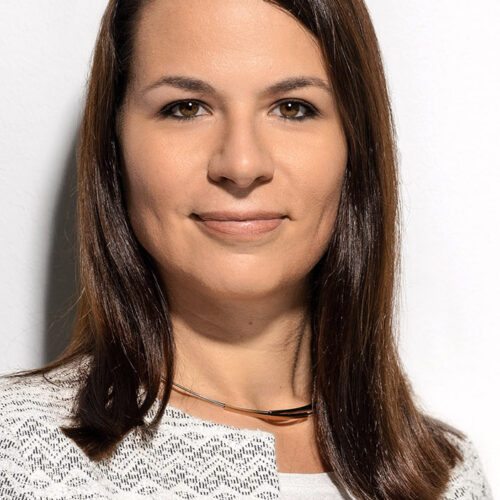
Areas of Expertise: European Studies and Post-Soviet Studies; Evaluation of Development Cooperation; Radicalization and Violent Extremism; Social Capital, Civil Society and Sustainable Development; Youth studies, National Identity and Media.
Country: Germany
Professional Background: Dr. Chiara Pierobon is DAAD Visiting Professor at the University of Washington, Seattle (USA) and Co-Editor of the Springer Open Access Publication Series „Transformation and Development in the OSCE Region” at the OSCE Academy. She holds a bi-national PhD in Sociology and Social Research awarded by the University of Bielefeld (Germany) and the University of Trento (Italy). In the past years, Dr. Pierobon served as manager of education exchange initiatives and programmes in Europe and Russia funded by the European Commission and the DAAD, and of collaborative research projects in Central Asia funded by the Volkswagen Foundation. Dr. Pierobon is former Visiting Professor for Macrosociology and European Societies at the Otto-von-Guericke University Magdeburg (Germany) and former Visiting Scholar at American University of Central Asia (Kyrgyzstan), German Kazakh-University (Kazakhstan), University of California/Berkeley (USA) and St. Petersburg State University (Russia). In addition to her academic activities, she has been active as consultant and trainer for organisations such as DVV International / Regional Office for Central Asia, Europe-Central Asia Monitoring (EUCAM) and the UNESCO Cluster Office for Central Asia.
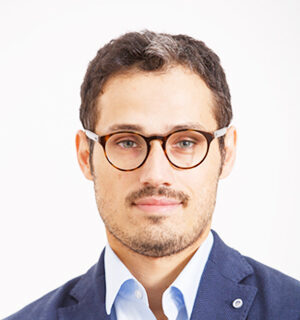
“Expert-Grup” (Moldova).
Areas of Expertise: EU integration, energy security, and
geopolitics in Eastern Europe and Russia, as well as
risk and crisis management, critical infrastructure, and strategic foresight. Cenusa is conducting his PhD research on EU conditionality and Russian hybrid warfare in Eastern Europe.
Country: Germany
Professional Background: Cenusa is the author of more than 300 analytical and policy papers published in CEPS, New Eastern Europe, CIDOB, and other platforms. He also (co)edited and (co) authored 4 books, including “Struggle for Good Governance in Eastern Europe” (2018).
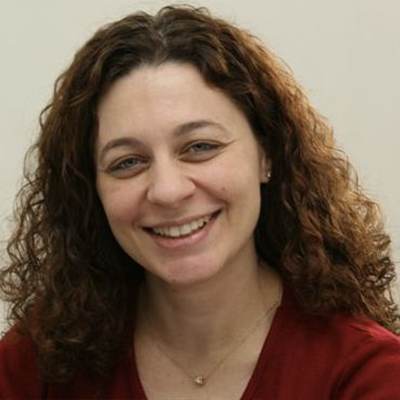
Areas of Expertise: Comparative regionalism, security and development, European Neighborhood and Black Sea politics.
Country: Greece
Professional Background: Dr. Manoli is an Assistant Professor in International Political Economy, Department of Politics and International Studies in the University of Peloponnese, Greece, and Head of the Programme on East European, Slavic and Eurasian Studies at ELIAMEP. She has been a Visiting Professor at the European Studies Center at the University of Pittsburgh (2016) and a Policy Scholar at the Woodrow Wilson International Center for Scholars in Washington D.C. (2010). Besides, she was the Director of Studies and Research at the International Center for Black Sea Studies – ICBSS in Athens between 2005 and 2009. Between 2000-2004, she was the Secretary of the Economic Affairs Committee of the Parliamentary Assembly of Black Sea Economic Cooperation in Istanbul. She is an Associate Editor of the Journal Southeast European and Black Sea Studies published by Routledge, Taylor, and Francis. She holds an MA and a Ph.D. from the University of Warwick where she studied as an Alexandros A. Onassis scholar. She is the author of The Dynamics of Black Sea Regionalism published by Ashgate in 2013 and editor of the Aftermath of the Ukrainian Crisis published by Routledge in 2016.

Areas of Expertise: Transnational migrations and diasporas, mobilities, film, cultural politics and diplomacy, post-socialism, the Caucasus, former Yugoslavia, Greece.
Country: Greece
Professional Background: Dr. Eleni Sideri holds a Ph.D. in Social Anthropology from SOAS/University of London. She did extensive fieldwork in the Caucasus, in former Yugoslavia (Sarajevo), and in Greece. She taught social anthropology in various departments and she has published in different languages. She recently completed her research in three countries of southeastern Europe (Bosnia-Herzegovina, Georgia, and Greece) on film co-production networks and the identity of Europe.
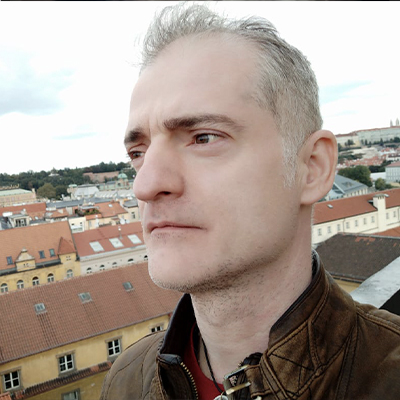
Areas of Expertise: Political parties, minority issues, foreign policy.
Country: Greece
Professional Background: Yorgos Christidis is a Doctor of Philosophy in Politics (University of Exeter, UK, 1998), has a Master of Arts in Middle East Politics (University of Exeter, 1993) and a Bachelor’s Degree in Politics and International Studies (Panteion University of Social and Political Sciences, Athens, 1991). At present, Dr. Christidis is an Associate Professor of Comparative Politics in the Balkans at the Department of Balkan, Slavonic and Oriental Studies of the University of Macedonia, Thessaloniki, Greece. He is also a Research Fellow at the Hellenic Foundation for European and Security Policy (ELIAMEP), Athens, and a Visiting Professor at the Faculty of History, University of Sofia “St. Kliment Ohridski”. His research interests include political parties and minority issues, foreign policy, and bilateral relations in Southeastern Europe.

Areas of Expertise: nationalism and multiculturalism discourses and practices, post-Ottoman religiosity, gendered subjectivity
Country: Greece
Professional Background: Fotini Tsibiridou is Professor of Social Anthropology (current Head) of the Department of Balkan, Slavic and Oriental Studies at the University of Macedonia and acting Director of the Laboratory for the Study of Culture, Borders, and Gender. She has done fieldwork in a former-refugee village in Greek Thrace, among the Pomaks in the Rhodopi mountains, in a Vlachophone village in Greek Macedonia, the Sultanate of Oman, and Peloponnesian villages. She has also researched nationalism and multiculturalism discourses and practices in Greek Thrace, as well as gender, citizenship, and creative counterpublics in Istanbul. Currently, she is researching two topics: post-Ottoman religiosity and gendered subjectivity in the frame of post-colonial critique (Balkans, Turkey, the Middle East), and feminist and other decolonizing methodologies deployed in creative inclusive diversities in Mediterranean cities in the way to/of critical cosmopolitanism and cosmopolitics.
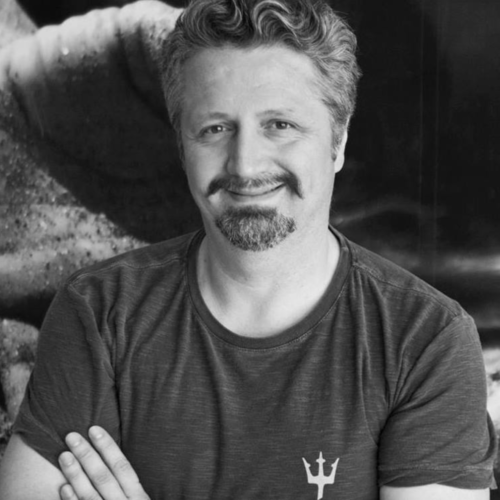
Areas of Expertise: Political Communication, Media Discourse Analysis, Digital Media, Media Literacy.
Country: Greece.
Professional Background: Dr Thomas Siomos is an adjunct lecturer of Qualitative Methods and a postdoctoral researcher at the Political Science Department of the Aristotle University of Thessaloniki. He worked extensively since 1987 as a journalist in several Greek media (TV, radio and newspapers) and he is still working as a journalist for the Greek State Radio. He has been a project manager for the Populismus Observatory on Populist Discourse and Democracy (2013-2015) and remains an active member of the research team. He also worked as developing team leader for a project funded by Google Digital News Initiative (2017-2019). He published papers that appeared in journals such as Critical Discourse Studies, Contemporary Political Theory, Greek Review of Political Science (auth.academia.edu/ThomasSiomos). His research interests are media literacy and disinformation, discourse analysis, media narratives, comparative studies of new and traditional media, mediatization, post-democracy, Lacanian and Laclaunian political theory, cybernetics and systemic theory, and the ontology of the new technologies and posthumanism.
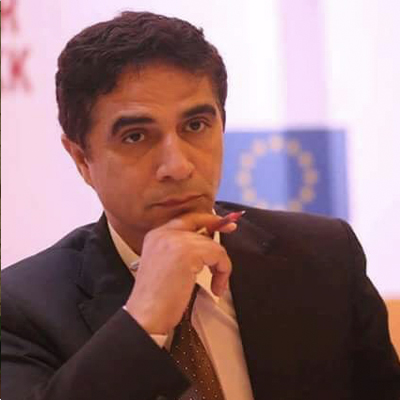
Areas of Expertise: Political Islam, European-Arabian relations, politics of Jordan.
Country: Jordan
Professional Background: Prof. Shalabi holds a Ph.D. in Political Science from the Faculty of Law at Paris University Panthéon-Assas. Between 2005 and 2007, he was the Director of the Department of Humanities and Social Sciences & Program of International Relations and Strategic Studies at Hashemite University. In 2006, he won UNESCO Sharjah Prize for Arab Culture in Paris. He is also a member of the International Scientific Journal on Defense Issues in Algeria. Between 2011 and 2013, he was the Vice-Dean of the Faculty of Letters at Hashemite University in Jordan. Prof. Shalabi published more than 30 researches and articles in Arab and international scientific journals including; “Jordan: Revolutionaries without a Revolution” by the Arab Institute for Research and Publishing in 2017, ”Globalization and its impact on Media & Education in Jordan” by The Arab Institute for Research and Publishing in 2009.
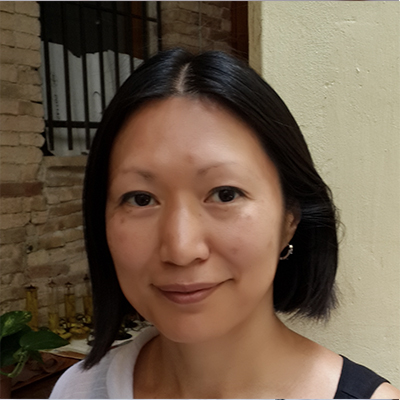
Areas of Expertise: Central Asian politics and security, Eurasian geopolitics, energy security, Kazakhstan’s foreign policy.
Country: Kazakhstan
Professional Background: Assoc. Prof. Kassenova holds her Ph.D. in International Cooperation Studies from Nagoya University (Japan). She taught many courses including Fundamentals to International Relations, Comparative Politics, U.S.-Central Asia Relations, Russia-Central Asia Relations, Asian Security: Theory and Practice, and Japan in Global Politics at KIMEP University. Assoc. Prof. Kassenova has many publications including “Kazakhstan’s Policy Toward Afghanistan: Context, Drivers and Outcomes” in “Afghanistan and Its Neighbors After the NATO Withdrawal” (2016) edited by Christian Bleuer.
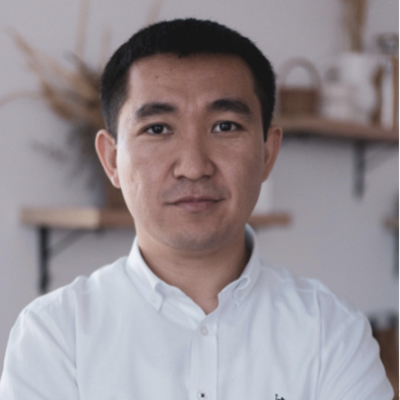
Areas of Expertise: Central Asian geopolitics and security; EU-Central Asia relations; foreign policy of Kazakhstan; international identity and image/perception studies.
Country: Kazakhstan
Professional Background: Dr. Zhanibek Arynov is a Postdoctoral Scholar at the Graduate School of Public Policy (GSPP), Nazarbayev University, Kazakhstan. He received his doctoral degree in International Relations from the University of St. Andrews, UK. Prior to joining the GSPP, Zhanibek Arynov served as a Senior Expert of the Program of Eurasian Studies at the Institute of World Economics and Politics (IWEP), one of the leading think-tanks based in Nur-Sultan, Kazakhstan. He also worked as a junior researcher in the Institute of National Studies in Almaty, Kazakhstan.
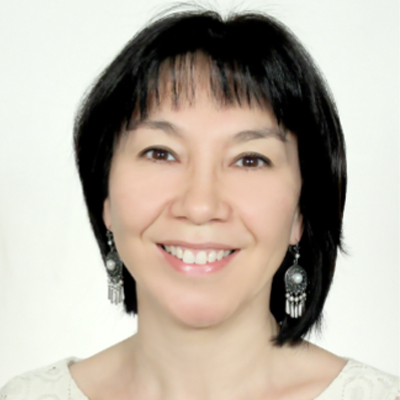
Areas of Expertise: Nation and state-building, identity politics, security issues, civil society, contentious politics, formal and informal institutions, and social capital.
Country: Kazakhstan
Professional Background: Dr. Sharipova received her Ph.D. in Political Science from Indiana University, Bloomington. She was a Board Member of the European Society of Central Asian Studies and Research Director in the College of Social Sciences at KIMEP University. Currently, Dr. Sharipova is a member of the Editorial Board for the Central Asian Survey. She published extensively in such scholarly journals as Nationalism and Ethnic Politics, Central Asian Survey, Nationalities Papers, Studies in Conflict and Terrorism, Asia-Europe Studies, and others. Dr. Sharipova authored the book “State-building in Kazakhstan: Continuity and Transformation of Informal Institutions†(Lexington Books Publisher) in 2018.
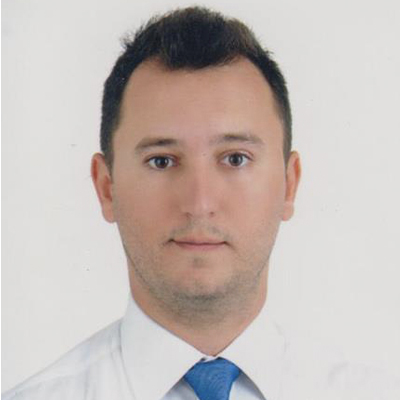
Areas of Expertise: Russian Politics, Multiculturalism and Minority Rights, European Integration and External Relations, and Diaspora Politics.
Country: Kyrgyzstan
Professional Background: Gorkem Atsungur has been an Assistant Professor at the American University of Central Asia since August 2012 where he teaches Modern Europe, European Government Systems, Introduction to European Security, European Integration and External Relations, Extremism and Democracy in Europe, Research Methods, Identity-Nation States and Europeanization, and Multicultural Societies: Religious and Social Conflicts courses. He received his B.A in International Relations from Cyprus International University and his M.A. in European Studies from Istanbul Bilgi University and his MA in Political Science – European Politics from Masaryk University in the Czech Republic. Currently, he continues his Ph.D. studies in the Political Science: International Relations Major and Nationalism Studies Minor programs at the Central European University in Hungary.
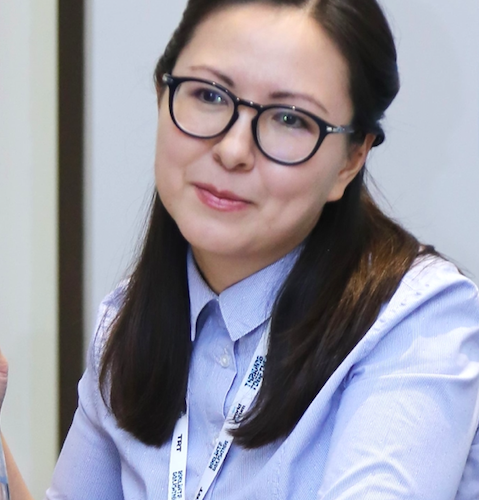
Areas of Expertise: International Relations, International Development, Foreign Policy, Democracy Promotion, Autocracy Diffusion, Russia, Central Asia
Professional Background: Dr. Aijan Sharshenova is a Bishkek-based political analyst and the Executive Director at Crossroads Central Asia think tank. She holds two Masters in the EU and Central Asian Studies and in International Studies, and a PhD in Politics from the University of Leeds. Aijan’s research interests include foreign policy and soft power, as well as democracy promotion, autocracy diffusion. She published extensively on Central Asian politics, focusing on the region’s relations with the EU, Russia and China. Aijan authored a book on the EU democracy promotionin Central Asia and co-edited a recent book on navigating positionality in research.
In addition to her academic career, Aijan has worked on promoting sustainable development goals in the international development area, including within the UN system in the Middle East.
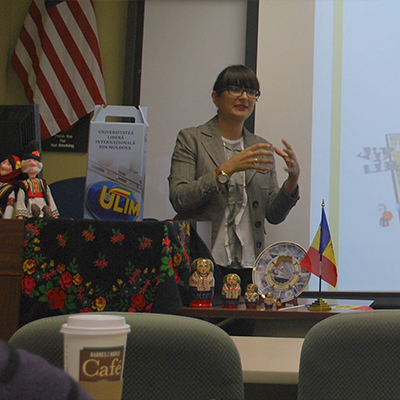
Areas of Expertise: Devolution, the geopolitics of borders, Eastern Partnership, Turkey-EU relationship and political Islam in Turkey, devolution phenomenon, specifically on devolution in the Republic of Moldova.
Country: Moldova
Professional Background: Ms. Patlis received her licentiate diploma and M.A. in International Relations (European Studies) from Free International University of Moldova (ULIM). She teaches courses in International Relations. She is also a researcher at the Institute of History and Political Science (ULIM) and a Ph.D. candidate at the Academy of Sciences of Moldova. She has conducted research and professional development visits in Poland in 2008, 2009 and 2013, Hungary in 2009, in Austria in 2010, in Lithuania in 2010, in Turkey in 2011, in Ukraine in 2012 USA between 2012 and 2013, and in Georgia in 2016. Ms. Patlis was a Carnegie Fellow in the Department of History and Politics and the Bishop Center for Ethical Leadership and Civic Engagement at USFSP in 2012 conducting research on Devolutionary Trends in Moldova: the Case of Gagauz Yeri. In 2016, Ms. Patlis became a winner of the Carnegie Scholar Publication Program 2016 competition for alumni of the CRFP

Areas of Expertise: South Caucasus, religion-state interaction, religious policy, religious education.
Country: Switzerland
Professional Background: Dr. Jödicke holds a Ph.D. in the Study of Religion (Zurich 1997). He led several joint research projects in the South Caucasus and edited two volumes focusing on the issue of politics and religion (Religion, Nation, and Democracy in the South Caucasus, Routledge 2015, and Religion and Soft Power in the South Caucasus, Routledge 2017).
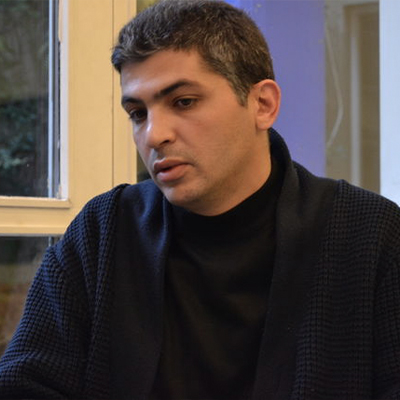
Areas of Expertise: Al Qaida in the Islamic Maghreb, Radical Islam Algerian politics, Iranian nuclear crisis.
Country: Morocco
Professional Background: Dr. Djallil Lounnas holds a PhD in Political Science from the Université de Montreal. He was a professor at the School of Governance and Economics (EGE) of Rabat between 2011 and 2012 before joining Al Akhawayn University in 2013. He is a specialist of North African and Middle East security and has conducted extensive filed research on the Jihadist groups in North Africa and in the Sahel. Among his publications are: “The Evolution of the Strategic Environment of Algeria`s Post Arab” in Maghreb Machreck (2015), “Confronting Al-Qaida in the Islamic Maghreb (AQIM) in the Sahel : Algeria and the Malian crisis”, Journal of North African Studies (2014), “The Al-Qaeda in the Islamic Maghreb and Drug Trafficking in the Sahel” in Maghreb Machreck (2014), “Algerian Strategy against Al Qaeda in the Islamic Maghreb” Politique Etrangere (2013), “The Regional Fallouts of the French Intervention in Mali”, Mediterranean Politics (2013), “China and The Iranian Nuclear Crisis: Between Ambiguities and Interests”, European Journal of East Asian Studies (2011).
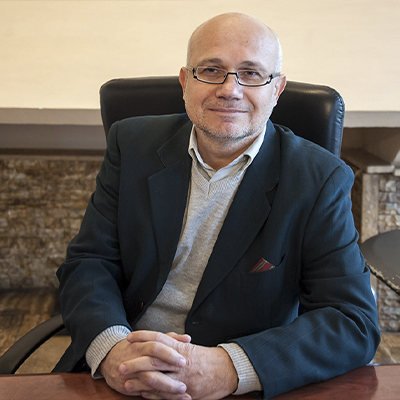
Areas of Expertise: Security sector reforms, conflict resolution, religious extremism, regional security, national security, and Euro-Atlantic integration.
Country: North Macedonia
Professional Background: Dr. Slaveski received his Ph.D. in defense and peace studies from the University of Skopje in 2001. Prior to becoming a member of the European University team, he was a Professor at the Military Academy in Skopje, Director of the Directorate for Security of Classified Information and he served as a military officer in the Army of North Macedonia. Dr. Slaveski published five books titled “The National Security of the Republic of Macedonia and Euro-Atlantic Integrations”, is the co-author of “European Union Through the Prism of European Security”, the co-author of “Interests of the North Macedonia in NATO membership, Security System” and of the “Identity of the Contemporary Macedonian Nation”. Dr. Slaveski is one of the founders and President of the George K. Marshal in Skopje. He is also a President of the Security and Defense Council of the Liberal-Democratic Party in North Macedonia.
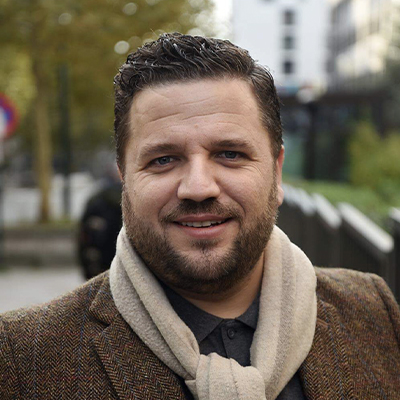
Areas of Expertise: Conflict and Post-Conflict Journalism, Media Development, dealing with the Past, Transitional Justice, Security Institutions Reform, Social Movements, Radicalisation, and Islam.
Country: Norway
Professional Background: Abit Hoxha is a researcher with long experience in the field of Media and Institutional change. He is currently working on a monograph as part of his Ph.D. research at the University of Munich (LMU) on Conflict News Production looking at Journalism in conflict areas in the Middle East, the Balkans, and Sub-Sahara. He is also working on Historic Revisionism and Media in the European context. He worked in Security Sector Reform in Kosovo through UNDP, capacity development efforts through UNFAO, World Bank and UNWomen, and local non-governmental organizations. He has been part of many international projects funded by the EU and other institutions including ‘Infocore’ funded by the FP7; ‘RePAST’ funded by the H2020; TJ2 funded by the British Academy and Worlds of Journalism Study. Abit holds a Bachelor Degree in Political Science from the University of Prishtina and a Master Degree on Journalism from the Kosovo Institute for Journalism and Communication and an MSc Degree in Defense, Development, and Diplomacy from the Durham University in the UK.

Areas of Expertise: Peacebuilding, state-building, security-sector reform, conflict resolution, EU external relations, EU Common Security and Defence Policy, European Neighbourhood Policy, Euro-Mediterranean Relations, Middle East and North Africa politics, the Israeli-Palestinian conflict, and Libya.
Country: The Netherlands
Professional Background: Dr. Bouris holds a Ph.D. in Politics and International Studies from the University of Warwick in the United Kingdom. Prior to joining the University of Amsterdam, he was a Research Fellow in charge of the southern dimension of the European Neighbourhood Policy at the European Neighbourhood Policy Chair of the College of Europe in Natalin, Poland, and a visiting lecturer in Middle East Politics at Kingston University in the UK. Dr. Bouris is the author of “The European Union and Occupied Palestinian Territories: State-building without a State†published by Routledge in 2014 for which he was selected as Routledge Politics and International Relations author of the month for February 2014. He is also the co-editor (with Tobias Schumacher) of “The Revised European Neighbourhood Policy: Continuity and Change in EU Foreign Policy†published by Palgrave in 2017.
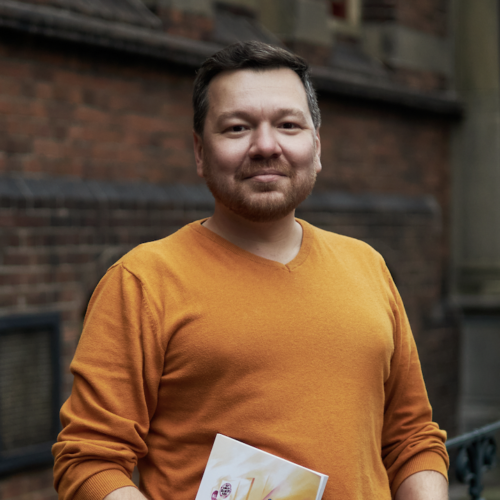
Areas of expertise Media studies, surveillance, digital media, vigilantism, online communities, netnography, Russia, Central Asia, disinformation
Professional background
Through his work, Dr. Gabdulhakov aims to spotlight people, places, and cases that are underrepresented or simply ignored in scholarly debates. He is an Assistant Professor at the Research Centre for Media and Journalism Studies at the University of Groningen in the Netherlands. He defended his PhD (Cum Laude) at Erasmus University Rotterdam in the Netherlands on the topic of “Digital vigilantism in Russia: Citizen-led justice in the context of social change and social harm”. Dr. Gabdulhakov’s current research focuses on the role of social media in (dis)informing online communities of Central Asians in Russia and Russophones in Europe. You can learn more about him and his work on his personal website plovism.com
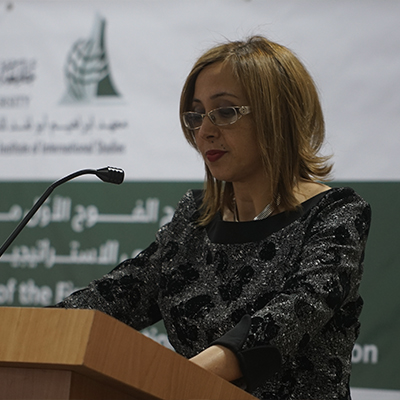
Areas of Expertise: Political theory
Country: Palestine
Professional Background: Lourdes Habash, graduated from Birzeit University with a Master in International Studies. She was head of the political science department at Birzeit University. Habash holds a Ph.D. in Political theory and Theories. Author with others “Revolutions and the transition to democracy in the Arab region and Eastern Europe: Poland and Egypt model”.
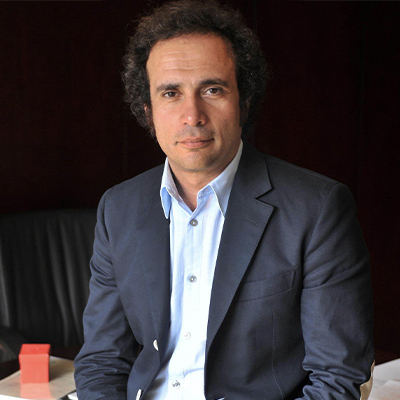
Areas of Expertise: Democratization processes in Egypt, tensions between freedom and repression in the Egyptian public space, political movements and civil society in Egypt, contemporary debates in Arab political thought, and human rights and governance in the Arab world.
Country: Egypt
Professional Background: Prof. Hamzawy studied political science and developmental studies in Cairo, The Hague, and Berlin. He was previously a senior associate in the Middle East program at the Carnegie Endowment for International Peace between 2005 and 2009. Between 2009 and 2010, he served as the research director of the Carnegie Middle East Center in Beirut, Lebanon. He has also served at the faculty at the American University in Cairo, Cairo University, and Stanford University. Prof. Hamzawy is a former member of the People’s Assembly elected in the first Parliamentary elections in Egypt after the January 25, 2011 revolution. He is also a former member of the Egyptian National Council for Human Rights. Hamzawy contributes to a weekly op-ed to the Egyptian independent newspaper Shorouk.
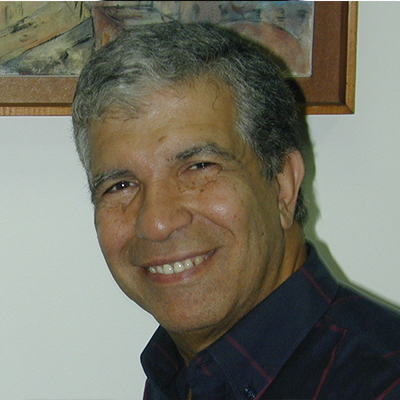
Areas of Expertise: International relations, political economy in the Arab world
Country: Egypt
Professional Background: Bahgat Korany is an elected Fellow of the Royal Society of Canada and an Honorary Professor at the University of Montreal, Canada. Before joining academia, Korany worked in the United Nations (European Office) from 1970 to 1974 while initiating his academic career, first at the Graduate Institute of International Studies, Geneva (1970-74), then at the University of Montreal (1974 to the present). He has been a visiting professor at various universities from Harvard (visiting scholar) to Oxford and Paris. He was the Founding Director of the Inter-University Consortium of Arab Studies, Canada. He is also a founding member of the international organisation of South-South Cooperation (Beijing, April 1983). In addition to media activity and public talks, including at the British Parliament in January 2013, Korany has published 12 books and, contributed chapters to 27 other books. His 2010 book “The Changing Middle East” has been noted by CNN as indicating the “Arab Spring†a year before it happened.
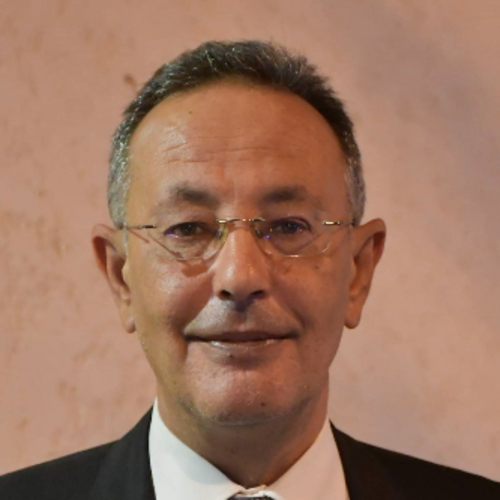
Areas of Expertise: Trade Policy, Regional Economic Integration, Relationship between the European Union and the South Mediterranean Countries, Trade in Services, Political Economy, Institutional Economics.
Country: Egypt
Professional Background: Ahmed Farouk Ghoneim is currently a Professor, Faculty of Economics and Political Science, Cairo University. He is a research fellow at the Economic Research Forum for Arab Countries, Iran and Turkey (ERF) as well as at Center for Social and Economic Research (CASE) in Poland. He works as a consultant to several international and national organizations including the World Bank, WTO, UNCTAD, UNDP, and the World Intellectual Property Organization (WIPO). He holds a Ph.D. in Economics and his special interests in research include mainly trade policy, trade in services, regional trade integration, the multilateral trading system, the World Trade Organization, the economics of Intellectual Property Rights, institutional economics, law and economics, and political economy in which
he has published widely. He held different policy oriented positions, among which was an advisor on foreign trade issues to the Minister of Foreign Trade and advisor to the Minister of Industry on foreign trade issues and international agreements. He advised several governments on different trade policy issues, and helped in capacity building programs in a number of countries. Since August 2014 he has been appointed as the Cultural Counselor for Egypt in Berlin and Vienna and the Head of the Student Mission in Germany, Austria and a number of European countries, which is a diplomatic position lasting for three years. Starting November 2018 he has been back to Egypt, as A professor of economics, Cairo University and pursuing back his research and consultancy interests. In August, 2020, he was appointed as the head of the economic authority of the Egyptian Museum of Civilization.

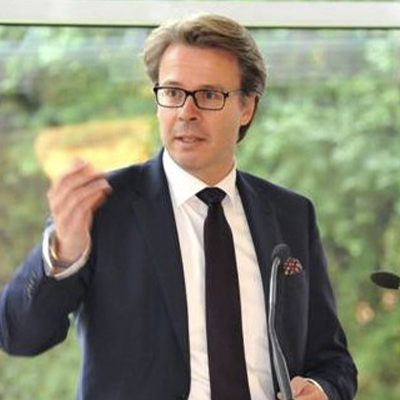
Areas of Expertise: European Neighbourhood Policy, Euro-Mediterranean relations, Middle East and North Africa politics, and Foreign Policy Analysis.
Country: Poland
Professional Background: Prof. Schumacher earned his Ph.D. in Political Science at the University of Mainz in 2002 and was awarded several fellowships and grants by, among others, Harvard University, the University of Cambridge, and the European Commission. He taught at the European University Institute, the Dublin European Institute, Johns Hopkins University, Munich University, Mainz University, and Ilia State University in Tbilisi. He is the author of some 90 books, book chapters, articles, and policy papers on the European Neighbourhood Policy, Euro-Mediterranean relations, Middle East and North Africa politics, and Foreign Policy Analysis.
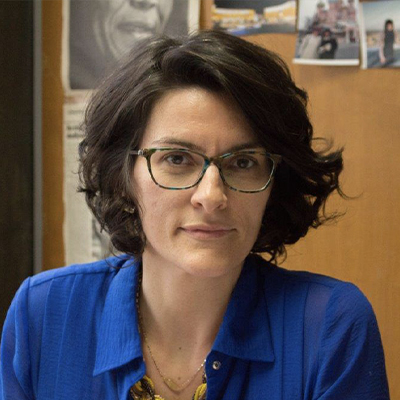
Areas of Expertise: European Foreign Policy, EU-Russia Relations, Regional Dynamics in the South Caucasus and Central Asia, European Security
Country: Portugal
Professional Background: Licínia Simão, Ph.D. in International Relations (specialization in European Studies) from the University of Coimbra, is an assistant professor at the School of Economics, University of Coimbra, and senior researcher and member of the Executive Board at the Centre for Social Studies, at the same university. She is currently the Coordinator of the IR Section at the Portuguese Political Science Association. Her research has been published in leading academic journals including International Politics, East European Politics, European Politics and Society, Small Wars & Insurgencies, European Security, Communist and Post-Communist Studies, among others. Her most recent publication is the book “The EU’s Neighbourhood Policy towards the South Caucasus: Expanding the European Security Community” (Palgrave Macmillan, 2018).
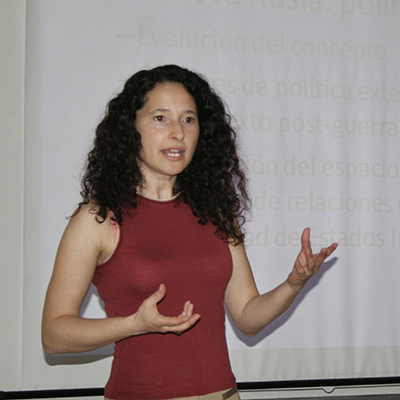
Areas of Expertise: Peace studies,foreign policy, international security, Russia and the post-Soviet space.
Country: Portugal
Professional Background: Assoc. Prof Maria Raquel Freire received her Ph.D. in International Relations from the University of Kent, UK, in 2002. She is currently the director of the Ph.D. Program in International Politics and Conflict Resolution, CES|FEUC (FCT funded program). She is also a member of the Governing Board of the European International Studies Association (EISA). Her work has been published in peer-reviewed journals such as European Politics and Society, European Review of International Studies, Journal of Balkan and Near Eastern Studies, East European Politics, European Security, International Peacekeeping, International Politics, Asian Perspective, Global Society, La Revue Internationale et Stratégique, Journal of Conflict, Security and Development, Relações Internacionais, among other.
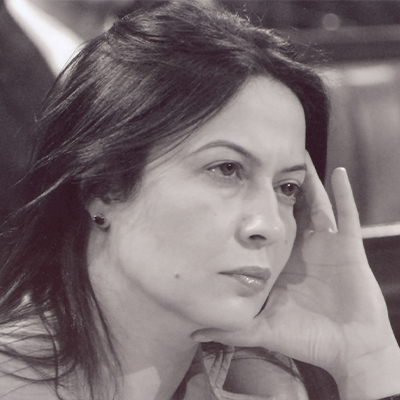
Areas of Expertise: International Relations, Security.
Country: Tunisia
Professional Background: Dr. Emna Ben Arab served as a Member of the Tunisian Parliament (2004-2011) before joining the University of Sfax. She is the author of a book entitled “A Future Made Perfect? The Image of the Coming Millennium in American Science Fiction”, and of a number of articles on security issues: “The Making of a Foreign Terrorist Fighter: Tunisia as a Case Study”, “The Impact of Syria’s War on the Security Environment in the MENA Region”, “Foreign Fighters: the new security threat”.
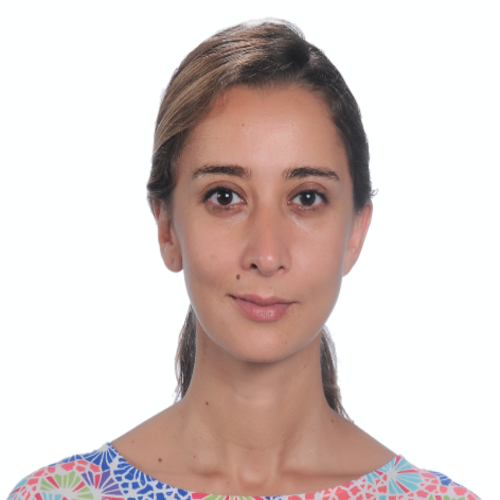
Areas of Expertise: Refugees, migration.
Country: Turkey
Professional Background: Dr. Fulya Memisoglu previously worked as research fellow at the Refugee Studies Centre, University of Oxford (2017), Robert Schuman Centre for Advanced Studies of the European University Institute (2013). She regularly works with international research teams and is an adviser for various governmental and non-governmental projects on Turkish migration and refugee policy. Dr. Memisoglu holds an MA from the University of Warwick and a Ph.D in Politics from the University of Nottingham.
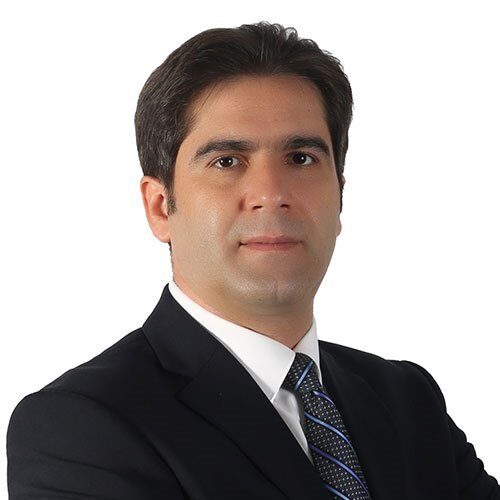
Areas of Expertise: Foreign policy, human rights, energy security, radicalisation.
Professional Background: Dr. Saban Kardas has taught classes at the Diplomacy Academy, Sakarya University, Police Academy and the Turkish Military Academy. He has published scholarly articles and book chapters on Turkish domestic and foreign policies, human rights, energy policies and international security and has been an occasional contributor to Turkish and international media. Besides, he is assistant editor to the quarterly journal Perceptions and writes analyses for the GMF’s on Turkey series. Dr. Kardas received his PhD in political science from the University of Utah.
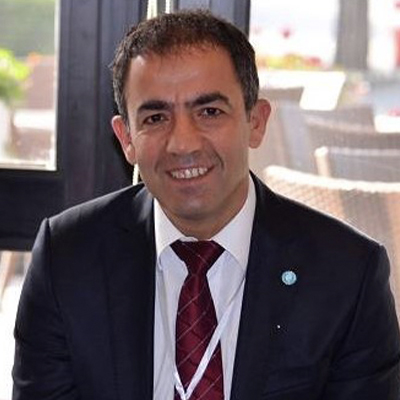
Areas of Expertise: Islamic radicalization, security, international relations.
Country: Turkey
Professional Background: Assoc. Prof. Yalcinkaya graduated from Kuleli Military High School and Turkish Military Academy. During his military service as an officer, he completed his post-graduate studies in International Relations at Istanbul University. He studied “peacekeeping” at MA level and “transformation of war” at Ph.D. level. After earning his Ph.D. degree, he had academic studies at Oxford University, West Point Military Academy, and the University of Florida. After serving more than ten years at the Turkish Military Academy he has been an Associate Professor in International Relations at TOBB University of Economics and Technology since 2013. As of now, he has been conducting research on Foreign Fighters.
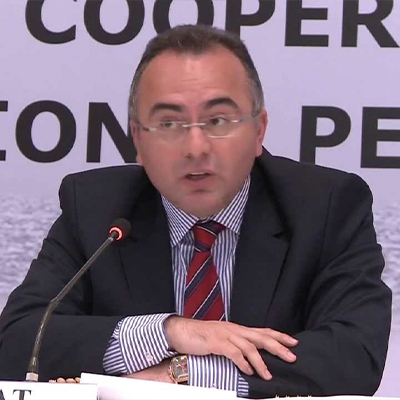
Areas of Expertise: Caucasus, North Caucasian Diaspora, people and security in the Caucasus and the Black Sea regions, Turkish-Russian relations, energy security, and critical infrastructure protection.
Country: Turkey
Professional Background: Prof. Celikpala previously served as an academic advisor for NATO’s Center of Excellence Defense Against Terrorism in Ankara (2009-2012), especially regarding regional security and critical infrastructure protection. Also, he was a board member at the Strategic Research and Study Center (SARAM), Turkish General Staff (2005-2011); Academic Adviser for the Center for Strategic Research (SAM), Turkish Foreign Ministry (2002-2010), and Caspian Strategy Institute, Istanbul Turkey (2012-2013). He was a Senior Associate Member at St Antony’s College, Oxford University in the UK between 2005 and 2006.
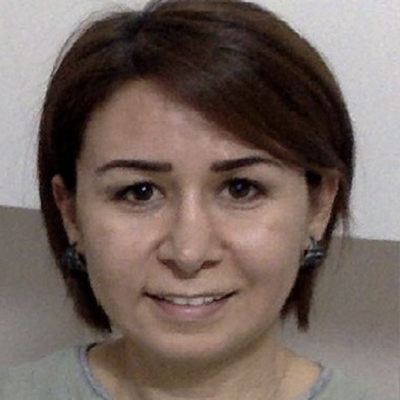
Areas of Expertise: Human Rights, Asylum Policy, EU Law, EU-Turkey Relations.
Country: Turkey
Professional Background: She worked as a research fellow at the University of Oxford (2009) and as a visiting scholar at the University of Rome II (Torvergata) (2013). She also did her Post-Doc at the University of Vienna, Faculty of Law as a Jean Monnet Scholar in 2015. She holds an LLM from Dokuz Eylul University and a Ph.D. in European Union Law from Ankara University. She is the author of several books, book chapters, and articles in national and international journals related to European Union issues.
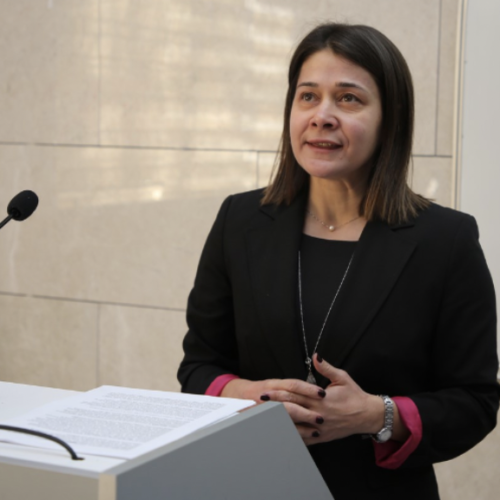
ENC Academic Council Member and Associate Professor of Political Science and International Relations at Cukurova University
Areas of Expertise: Foreign Policy, Migration, Identity Politics
Country: Turkey
Professional Background: Dr. Asli Ilgit is an Associate Professor of Political Science and International Relations at Cukurova University in Turkey. Prior to coming to Cukurova, Asli was an Assistant Professor of Political Science at Gustavus Adolphus College in the USA. Asli has completed her BA in Political Science and International Relations at Boğaziçi University in Turkey, her MA in International Relations and Ph.D. in Political Science at Syracuse University in the USA. Her research interests include politics of identity, foreign policy, role of emotions in politics, and migration. Her work has been published in Uluslararasi İliskiler (International Relations), Political Psychology, Review of International Studies, British Journal of Politics and International Relations, Security Dialogue, Mediterranean Politics, the World Financial Review, and MERIP. She also has solo- and co-authored book chapters published in EU/Turkey Relations in the Shadows of Crisis: A Break-Up or Revival? (ed. Asli Bilgin) Lexington Books, The Middle East in the World: An Introduction (ed. Lucia Volk), Routledge, Psychology and Constructivism in International Relations: An Ideational Alliance (eds. Vaughn P. Shannon and Paul A. Kowert) University of Michigan Press (with Binnur Özkececi-Taner), and Turkey’s Syrians: Today and Tomorrow (eds. Deniz Eroğlu Utku, K. Onur Unutulmaz, İbrahim Sirkeci) TP: London (with Fulya Memişoğlu).
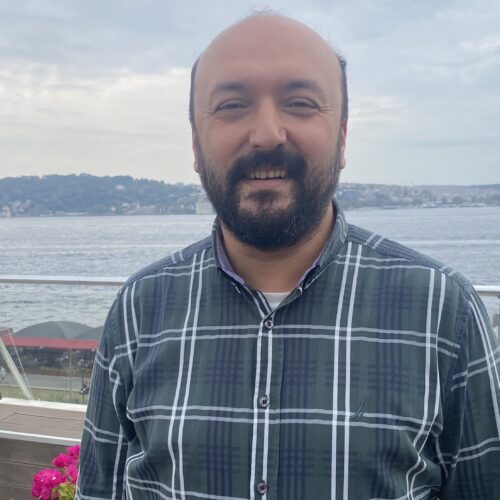
Areas of Expertise: Comparative Politics, Political Parties, Enfranchisement, Elections, Political Behaviour
Country: Turkey
Professional Background: Dr. Yüksel Alper Ecevit is an associate professor of Comparative Politics at Bahçeşehir University in Turkey. Dr. Ecevit received his doctoral degree at Political Science Department at Binghamton University, U.S.A. Previously he received his B.A. in Political Science and International Relations at Marmara University. Following the completion of his bachelor degree, he received Jean Monnet fellowship to complete his Master’s studies on European Union Studies at Leiden University. His second M.A degree was received at Sabancı University Political Science Department.
His scholarly work appeared in prestigious journals including Party Politics, Political Research Quarterly, International Political Science Review, Parliamentary Affairs and Acta Politica. His research is focused on democratization, political parties, electoral systems, and political behavior.

Areas of Expertise: Comparative regionalism, foreign policy, security, conflict resolution, post-communist countries.
Country: United Kingdom
Professional Background: Professor Rick Fawn holds a Chair in International Relations at the University of St Andrews. He has published dozens of academic journal articles and book chapters concerning IR, comparative regionalism, foreign policy analysis, and the politics, security, conflicts, and regional and international relations of post-communist countries. His most recent of twelve books is International Organizations and Internal Conditionality: Making Norms Matter (Palgrave Macmillan, 2013). He has worked on-ground in numerous capacities across most countries of Central and Eastern Europe and the former Soviet Union. Rick’s work also extends to secondments, invited contributions, and briefings to international media, NGOs, national governments, and intergovernmental organizations.
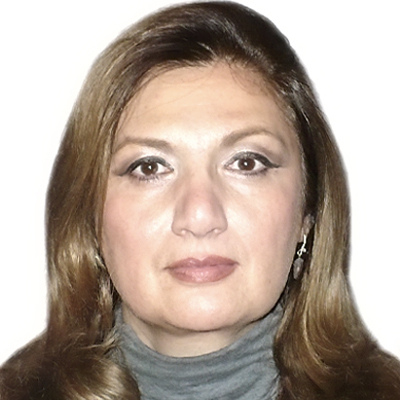
Areas of Expertise: Domestic and foreign policy, energy security, conflicts, and security sector reform, EU and NATO integration, multilateralism, energy security. conflicts and politics in the South Caucasus, conflict resolution, Democratisation, energy, European Union, Russia, Security, South Caucasus.
Country: United Kingdom
Professional Background: Dr. Alieva is the founder and head of the “think tank” Center for National and International Studies (2004). Leila Alieva held research fellowships at Harvard University (1993-1994), UC Berkeley (2000), Woodrow Wilson Center Kennan Institute (1995), SAIS Johns Hopkins University (2001), NATO Defense College in Rome, Italy (2005), and in 2007 at the National Endowment for Democracy in Washington DC, where she researched the interrelations of oil and democracy. She advised the President of EBRD, served on the board of the Open Society Institute in Baku in 1998, and was a National Coordinator of the Human Development Report for UNDP (1997). Her research on regional politics was published by the Oxford University Press, Sharpe, Journal of Democracy, Jane’s Intelligence Review, and others. She has extensively been writing on the issues of EU and NATO integration.
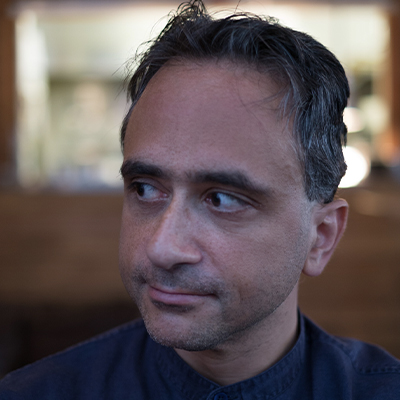
Areas of Expertise: Post-colonial perspectives on contemporary Eurasian politics, democracy/security nexus in the former Soviet space.
Country: United Kingdom
Professional Background: Dr. Oskanian obtained his PhD at the London School of Economics’ Department of International Relations, and has previously taught at the LSE and at the University of Westminster. His latest monograph “Fear, Weakness and Power in the Post-Soviet South Caucasus” analyses security in the region from a Copenhagen School perspective. His current research interests include post-colonial perspectives on contemporary Eurasian politics, and the democracy/security nexus in the former Soviet space.
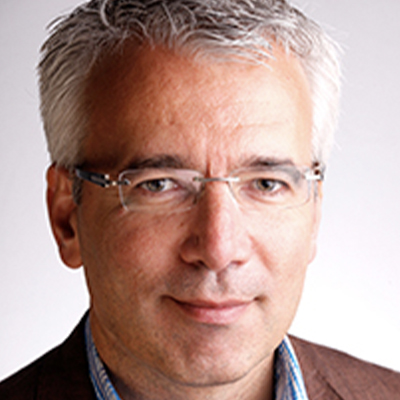
Areas of Expertise: Conflict resolution, peacebuilding, conflict transformation, post-conflict reconstruction, the politics of humanitarian interventions, role of faith in conflict prevention, youth in peacebuilding, rising powers in peace and conflict, disaster management, security sector reform, reintegration of former combatants and post-conflict state-building.
Country: United Kingdom
Professional Background: Prof. Ozerdem is the Chair of the annual Istanbul Human Security Conference since 2011 and has been organizing the Global Peace Workshop for young peacebuilders since 2013. He sits in editorial boards of a number of academic journals as well as acts as Peace Studies Co-Chair of the International Studies Association, Peer Review Member of the UK’s Economic & Social Research Council, and is an Invited Expert for the UNESCO’s International Decade for the Rapprochement of Cultures between 2013 and 2022. With over 20 years of field research experience in Afghanistan, Bosnia-Herzegovina, El Salvador, Kosovo, Lebanon, Liberia, Nigeria, Philippines, Sierra Leone, Solomon Islands, Somalia, Sri Lanka, Tajikistan, and Turkey, he has published 14 books and numerous journal articles, book chapters, op-eds and amongst other, is author of “Post-war Recovery: Disarmament, Demobilisation and Reintegration” published in 2008 and is the co-editor of “Human Security in Turkey” published in 2013.
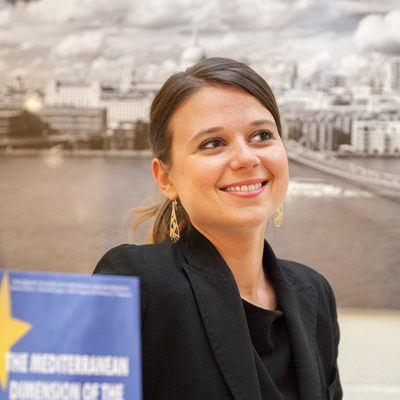
Areas of Expertise: External dimension of Justice and Home Affairs; EU migration, border, and asylum policies in the Mediterranean neighborhood and beyond; Brexit implication for UK/EU migration, asylum, and border management; Euro-Mediterranean relations; EU relations with North Africa; the role of religion and secularism in EU’s foreign policy; EU-Islam relations; EU democratization policies; de-centering EU’s foreign policy; EU theories and practice of policy-making; EU development policy.
Country: United Kingdom
Professional Background: In 2014/2015, Dr. Sarah Wolff was a Fulbright-Schuman fellow at the Transatlantic Academy (Washington, DC) and was also awarded a 2014/2015 Leverhulme Research grant for research on EU Engagement with Islamist political parties in Morocco and Tunisia. She is the editor of the peer-reviewed journal Mediterranean Politics. In the past, she has worked at DG EuropeAid, European Commission, and as a parliamentary assistant at the European Parliament. Her monograph The Mediterranean Dimension of the European Union’s Internal Security (Palgrave, 2012) builds upon fieldwork in Europe, Morocco, Egypt, and Jordan. She received the LISBOAN Research Award 2012 for her co-edited book ‘Freedom, Security and Justice after Lisbon and Stockholm’ (Asser, 2012). Dr. Wolff regularly contributes to various media (EU Observer, Le Monde, Today Zaman, Open Democracy, Al-Jazeera, Skynews, etc), blogs at http://sarahwolffeu.wordpress.com/, and tweets @drsarahwolff. Dr Wolff holds a Ph.D. in International Relations (LSE, 2009), an MSc in European Politics and Governance (LSE, 2004), and a BA in Public Administration (Science Po Grenoble, 1999).
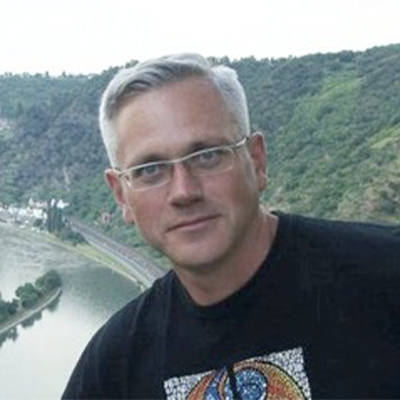
Areas of Expertise: Ukraine Foreign and Security Policy, International Relations in the Black Sea-Caspian region, European and Euro-Atlantic Security, Russia Foreign Policy, NATO-Ukraine, EU-Ukraine relations.
Country: Ukraine
Professional Background: Dr. Sergii V. Glebov received his Ph.D. in June 2002. In 2000/2001 he was a visiting scholar at the Center for European Studies, University of Exeter, and in 2003 at Columbia University, Harriman Institute. He has received several individuals and institutional fellowships, including from HESP/AFP Open Society Institute (Budapest, Hungary), Carnegie Foundation and Jean Monnet Program. He has been involved in several TEMPUS/Erasmus+/Horizon 2020 Projects in the sphere of higher education and research. He is the author and host of political programs at the Odessa Media TV-Radio Group “GLAS”.
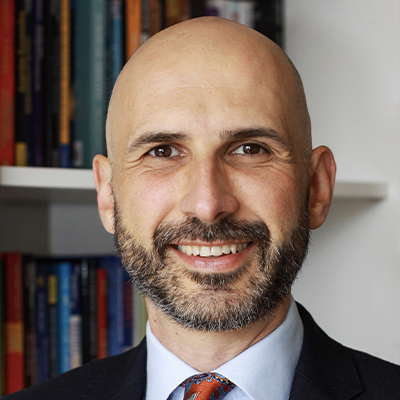
Professional Background: Branislav Radeljic is Professor of International Relations in the Department of Government and Society, United Arab Emirates University. He also serves as Visiting Professor of European Politics at Antonio de Nebrija University. His scholarly interests focus on European Union, East European, and Western Balkan political and socioeconomic developments. Professor Radeljic is the author of Europe and the Collapse of Yugoslavia: The Role of Non-State Actors and European Diplomacy (2012), editor of Europe and the post-Yugoslav Space (2013), Debating European Identity: Bright Ideas, Dim Prospects (2014), European Community-Yugoslav Relations: Debates and Documents that Mattered (1968-1992) (2017), and The Unwanted Europeanness: Understanding Division and Inclusion in Contemporary Europe (2021), and co-editor of Religion in the post-Yugoslav Context (2015) and Kosovo and Serbia: Contested Options and Shared Consequences (2016). He has presented his research findings at numerous conferences and workshops, and has regularly been invited to give talks and commentary to different media outlets. Outside academia, Professor Radeljic conducts research and provides consultancy services within his area of expertise. He is also a registered expert witness for asylum, refugee, and immigration cases. He covers Bosnia & Herzegovina, Kosovo, Montenegro, North Macedonia, Serbia, and Russia. His working languages are English, Bosnian-Croatian-Serbian (BCS), Italian, Macedonian, and Russian.
